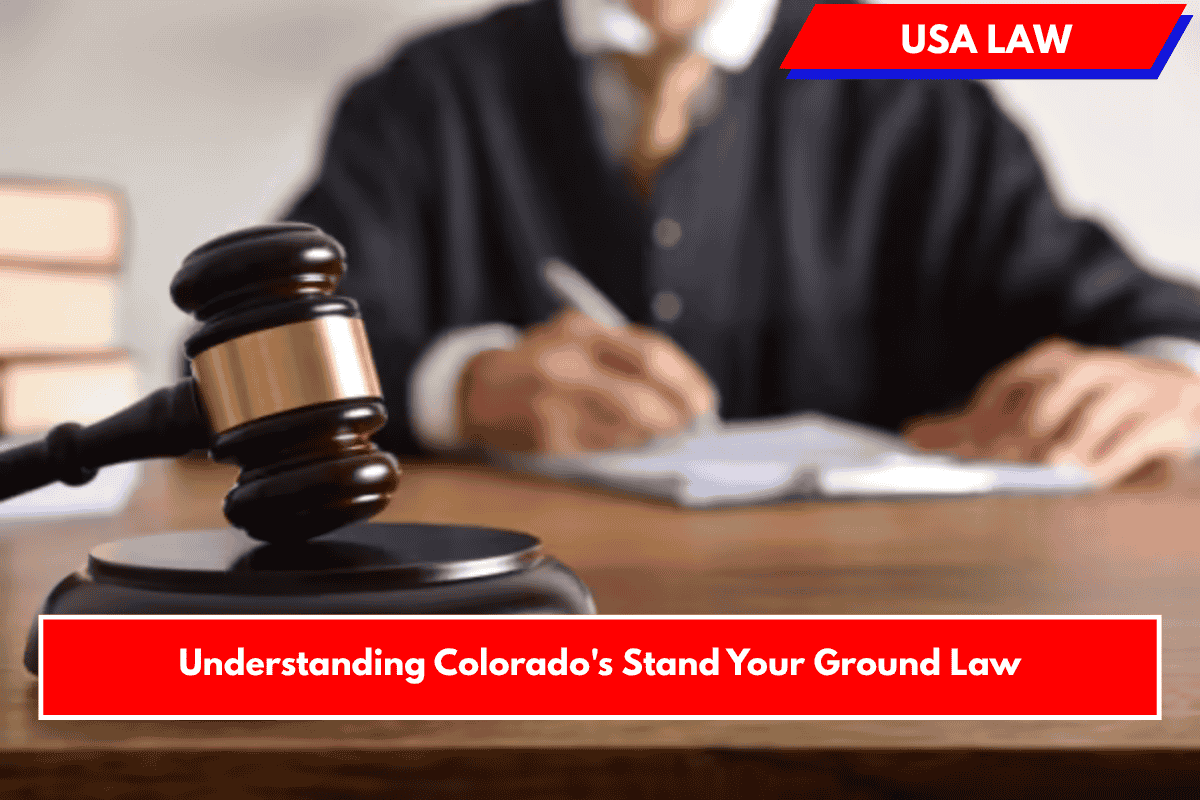Colorado’s approach to self-defense is often described as a “stand your ground” state, but its laws are nuanced and differ in important ways from the more expansive statutes found in states like Florida.
The core principle is that individuals have the right to use reasonable force—including deadly force in certain circumstances—to protect themselves or others from imminent harm, without a legal duty to retreat, provided they are in a place where they have a lawful right to be.
Key Principles of Colorado’s Stand Your Ground Law
No Duty to Retreat
- In Colorado, you are not required to retreat before defending yourself if you reasonably believe you or another person faces imminent danger of death or serious bodily injury.
- This applies both inside your home and, to a more limited extent, in public places where you are lawfully present.
Reasonable Belief and Proportionality
- The law requires that your belief in the need to use force is reasonable—meaning that a typical person in your situation would also perceive an immediate threat.
- The force used must be proportionate to the threat. Deadly force is only justified if you believe it is necessary to prevent death, serious bodily injury, kidnapping, robbery, or sexual assault.
Initiator Exception
- You cannot claim self-defense if you were the initial aggressor, unless you clearly withdraw from the confrontation and communicate your intent to do so, but the other party continues to use or threaten unlawful force.
The “Make My Day” Law: Home Defense
Colorado’s “Make My Day” law (CRS 18-1-704.5) is a specific extension of self-defense rights within one’s residence. It allows occupants to use deadly force against an intruder if all the following conditions are met:
- The intruder unlawfully enters the residence (including hotel rooms and similar dwellings).
- The occupant reasonably believes the intruder has committed, or intends to commit, a crime in addition to the unlawful entry.
- The occupant reasonably believes the intruder might use physical force, no matter how slight, against any occupant.
Under these circumstances, there is no duty to retreat, and the use of deadly force is presumed justified—even if escape would have been possible.
Self-Defense Outside the Home
While Colorado law generally allows you to stand your ground in public, the right to use deadly force is more restricted outside the home:
- You must have a reasonable belief that deadly force is necessary to prevent imminent death or serious bodily injury.
- There is no explicit statutory “stand your ground” law for public spaces, but Colorado courts have affirmed that there is no duty to retreat if you are lawfully present and not the aggressor.
- The law does not permit the use of deadly force solely to defend property, except in rare cases such as arson.
Defending Others
Colorado law allows you to use force to defend others if you reasonably believe that person is in imminent danger of unlawful force. The same standards of reasonable belief and proportionality apply.
Legal Process and Considerations
- If you claim self-defense, you are admitting to the use of force but asserting it was legally justified due to the circumstances.
- Prosecutors and courts will closely examine whether your belief in the threat was reasonable and whether your response was proportionate.
- The context—including whether you could have safely retreated, your relationship to the location, and whether you were the aggressor—will all be scrutinized.
Comparison: Stand Your Ground vs. Duty to Retreat
| Principle | Colorado’s Approach | Duty to Retreat States |
|---|---|---|
| Obligation to Retreat | No duty to retreat if lawfully present and not the aggressor | Must retreat if safely possible before using deadly force |
| Home Defense | “Make My Day” law: broadest rights | Usually covered by Castle Doctrine |
| Public Spaces | No duty to retreat, but deadly force only if necessary | Duty to retreat applies |
Controversies and Nuances
- Colorado’s stand your ground principles have generated debate, with supporters arguing they protect law-abiding citizens and critics warning of potential misuse and escalation of violence.
- The law’s application can be complex, especially in ambiguous situations or where the reasonableness of fear is contested.
Colorado’s stand your ground law provides robust self-defense rights, allowing individuals to use reasonable and sometimes deadly force without a duty to retreat, provided they are not the aggressor and have a reasonable belief of imminent danger.
The “Make My Day” law further strengthens these rights within the home. However, the law is nuanced and context-dependent, and each case is carefully evaluated on its specific facts.
Sources
- https://mbslawco.com/colorados-stand-your-ground-law-self-defense-in-violent-confrontations/
- https://www.pisanilaw.com/colorado-self-defense-laws-impact/
- https://www.rightlawgroup.com/colorado-self-defense-laws/
- https://en.wikipedia.org/wiki/Stand-your-ground_law
- https://www.jilljacksonlaw.com/colorado-stand-your-ground-law/











